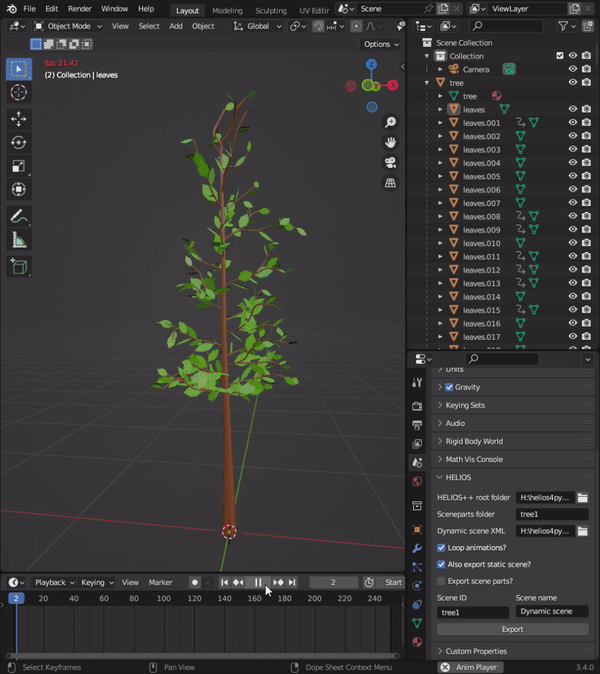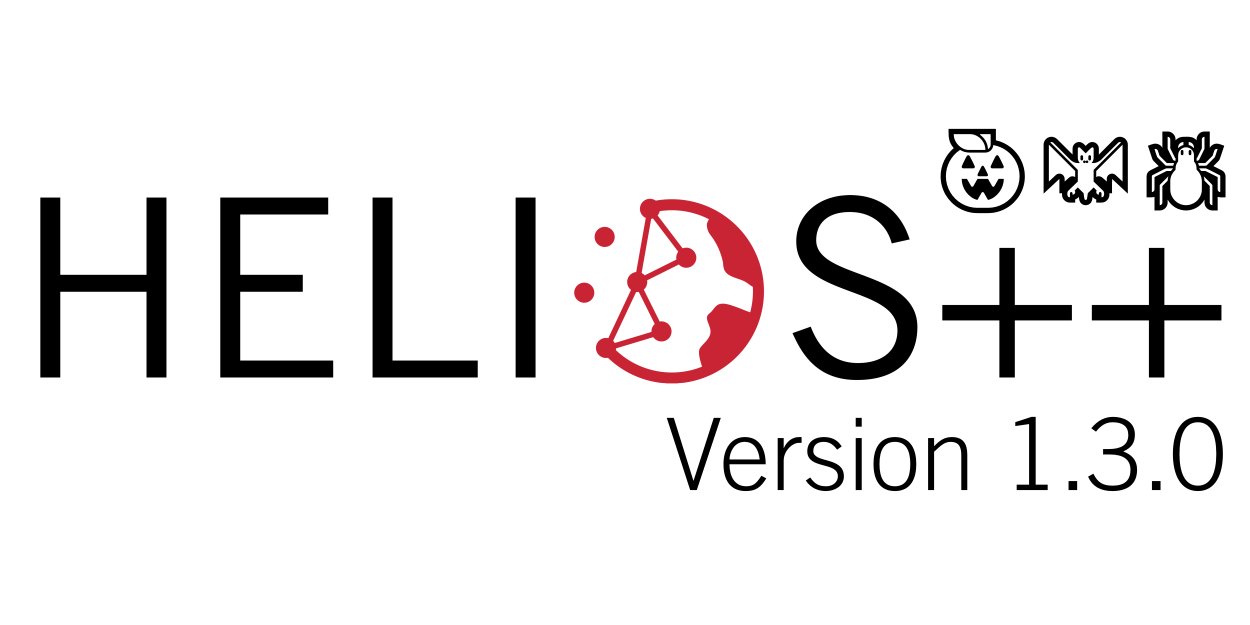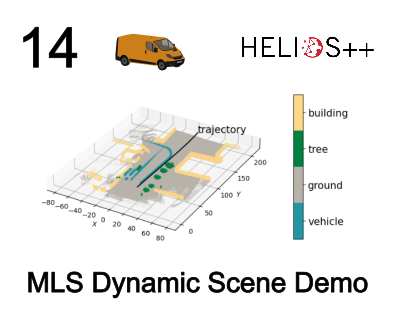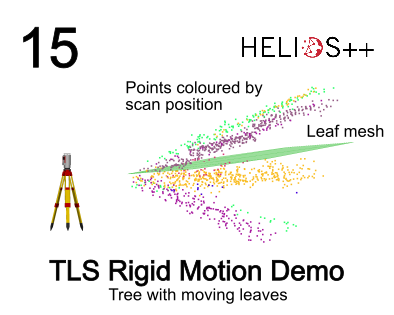We proudly present our Halloween release of HELIOS++, Version 1.3.0: https://github.com/3dgeo-heidelberg/helios/releases
What’s new in this release?
HELIOS++ now supports LiDAR simulation of dynamic scenes. We can now simulate laser scanning of scenes that change during the simulation. This is done by introducing rigid motions, which are defined with XML syntax in the scene XML file. See the wiki page for details.

🚘 Cars on a road
🍃 Leaves on a tree
🏭 Machines in a factory
These are just a few possible scenarios for dynamic scenes.
Let’s take a look at some cool jupyter notebook examples from our gallery.
You may ask yourself: But how do I configure such a complex scene?
Our tip: Use the powerful and open source 3D creation suite Blender. With our brand-new add-on dyn_b2h, you can export your Blender animations to HELIOS++. Download the add-on from GitHub (3dgeo-heidelberg/dyn_b2h)

Blender animation of a tree with leaf flutter, which can be exported to a dynamic HELIOS++ scene using the dyn_b2h add-on.
About HELIOS++
HELIOS++ is an open source software project with a modern implementation in C++, including Python bindings to allow easy use in existing workflows. The code and ready-for-use precompiled versions are hosted on GitHub. We invite interested researchers and developers to contribute to further development of this project by submitting pull requests. We also host an extensive wiki, where the complete functionality of HELIOS++ is documented.
If you use HELIOS++ in your work, please cite:
- Winiwarter, L., Esmorís Pena, A., Weiser, H., Anders, K., Martínez Sanchez, J., Searle, M., Höfle, B. (2022): Virtual laser scanning with HELIOS++: A novel take on ray tracing-based simulation of topographic full-waveform 3D laser scanning. Remote Sensing of Environment. Vol. 269.
HELIOS++ is funded by the German Research Foundation (DGF) in frame of the SYSSIFOSS project (funding code: 411263134), the VirtuaLearn3D project (funding code: 496418931) and the Sustainable HELIOS++ project (funding code: 528521476), and by the Federal Ministry for Education and Research (BMBF) in frame of the LOKI project (funding code: 03G0890A).







